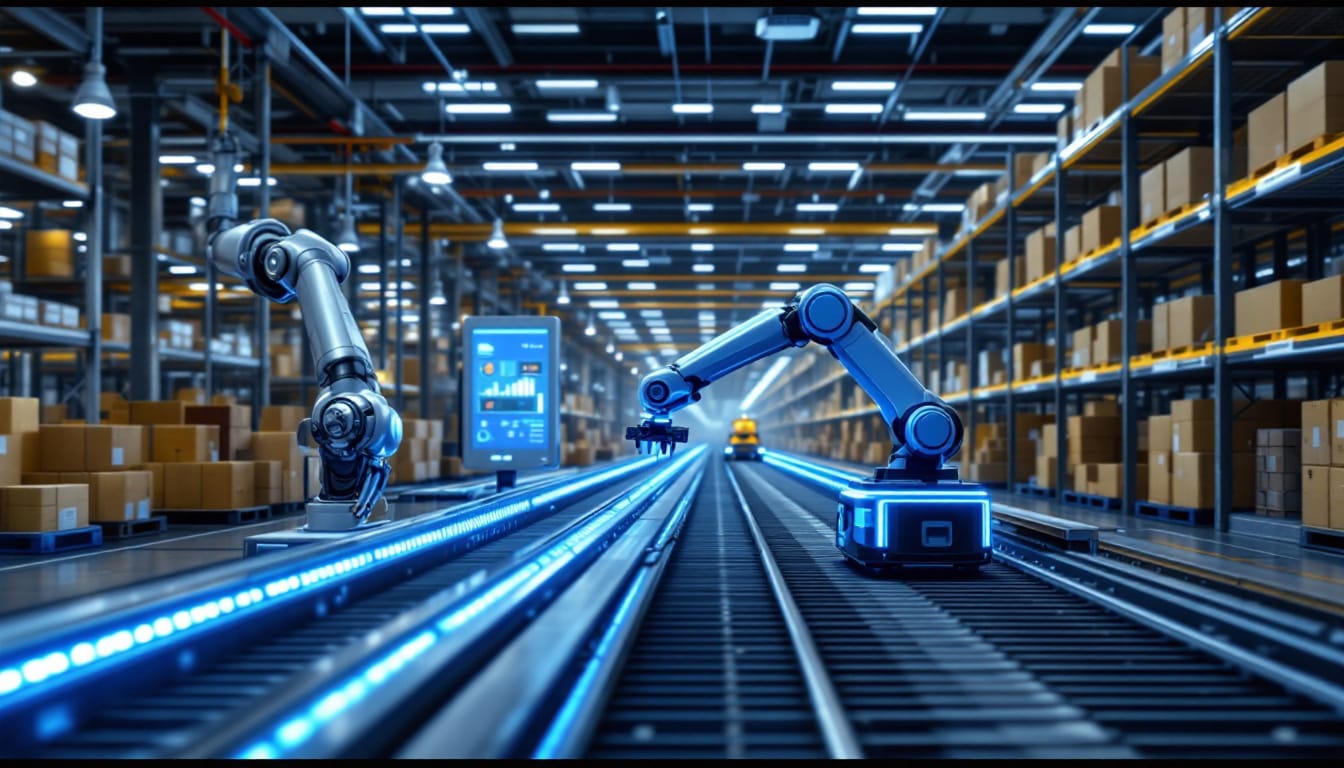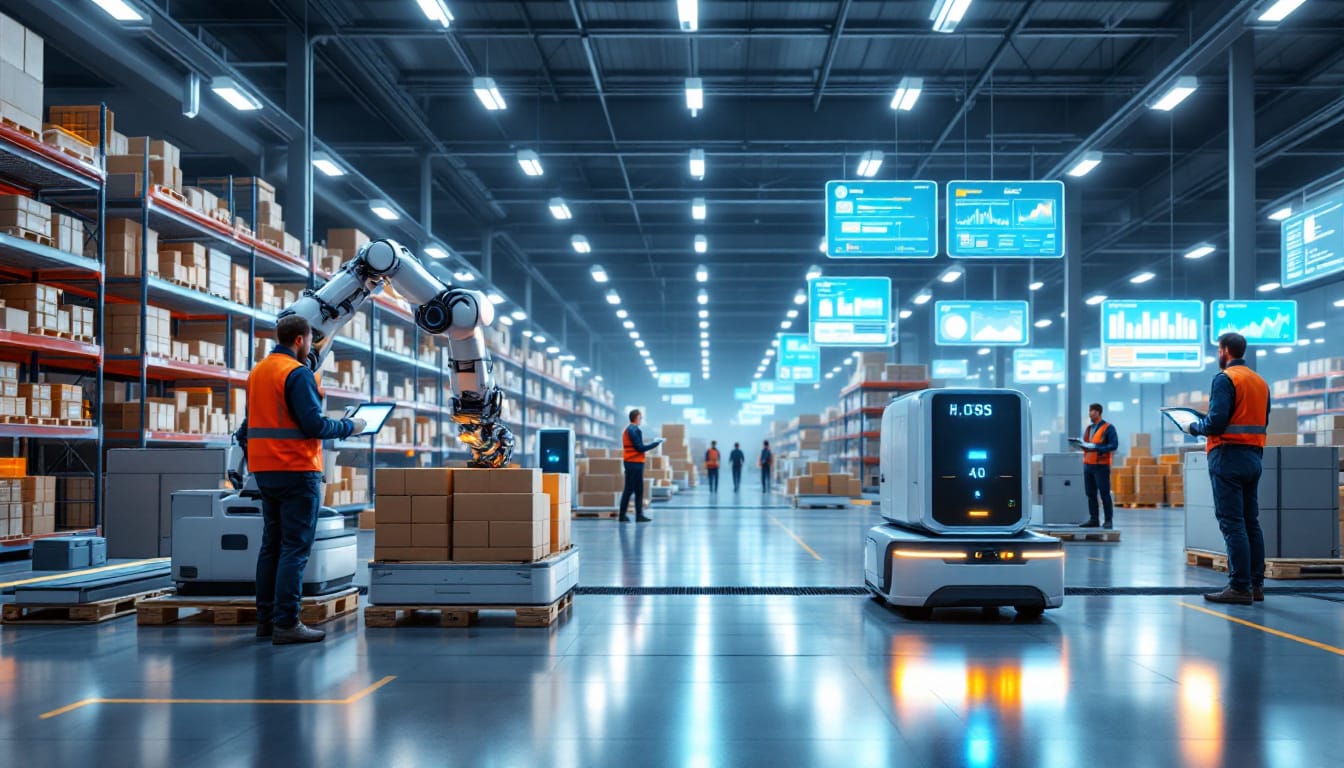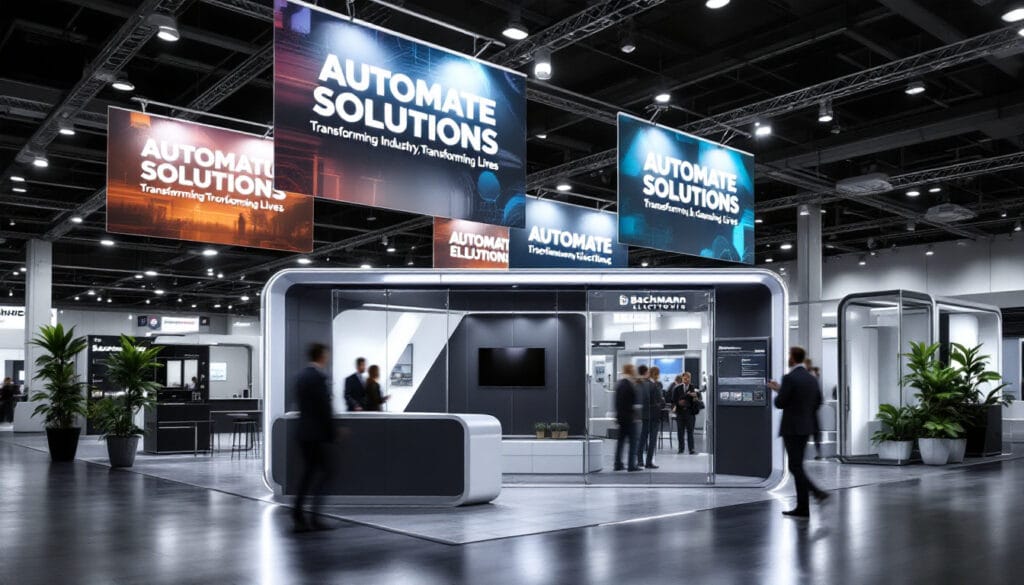Logistics automation is redefining the industrial landscape. In the era of Industry 4.0, efficiency and flexibility are becoming essential. In the face of labor shortages, innovative technologies are taking center stage.
Transformations in the logistics sector present both challenges and opportunities. Automated solutions, such as TGW’s Live Pick system, enable greater operational flexibility and enhanced scalability. The increasing importance of software and algorithms optimizes processes while ensuring data security. The benefits of data sharing foster effective collaboration among operators.

Table des matières
ToggleIntroduction to the podcast on adapting to Industry 4.0
Welcome to the era of Industry 4.0, a technological revolution that profoundly transforms industrial processes through automation and artificial intelligence. In this context, the podcast on adapting to Industry 4.0 serves as an essential resource for professionals eager to stay at the forefront of innovations in intralogistics. Hosted by Pierre, an experienced writer, this podcast explores the challenges and opportunities associated with integrating advanced technologies into supply chains.
What are the main challenges of automation in intralogistics?
The automation of intralogistics presents numerous challenges that companies must overcome to successfully transition to Industry 4.0. Among these challenges are managing labor shortages, adapting to an increasing demand for flexibility and efficiency, as well as the need to maintain enhanced profitability. Companies must invest in advanced technologies such as automated warehouse management systems and collaborative robots, while ensuring they train their personnel to interact effectively with these new solutions. Furthermore, securing data generates additional concerns, necessitating robust strategies to protect sensitive information against cyber threats.
In the podcast, Pierre discusses strategies to overcome these obstacles with industry experts. For example, the interview with David Hibbett, CEO of TGW Northern Europe, highlights the importance of automation technologies like TGW’s Live Pick system, which enhances operational flexibility and the scalability of logistics processes. These solutions allow companies to add additional robots to increase picking rates or add more shelving to scale their operations.
How does Industry 4.0 transform intralogistics processes?
Industry 4.0 revolutionizes intralogistics processes by integrating advanced technologies such as IoT, artificial intelligence algorithms, and automated management systems. These innovations enable an unprecedented optimization of workflows, reducing costs and increasing operational efficiency. For example, IoT sensors can track the position and condition of goods in real-time, thereby facilitating more accurate inventory management. Meanwhile, AI algorithms analyze large amounts of data to forecast demands and optimize picking routes.
The podcast episode featuring David Hibbett explores how these technologies enable better supply chain resilience. By using systems like TGW’s Live Pick, companies can quickly adapt their operations to market fluctuations and specific customer needs. Additionally, the centralization and sharing of data provide increased transparency, allowing all operators to learn from one another and continuously improve their practices.
What are the benefits of automation for flexibility and efficiency?
Automation brings enhanced flexibility and efficiency to intralogistics processes by allowing companies to respond quickly to market changes and demand variations. Automated systems can be easily adjusted to increase or decrease production capacity as needed, without requiring major modifications to existing infrastructure. This results in a significant reduction in order processing times and an improvement in customer satisfaction.
Furthermore, automation minimizes human errors and optimizes resource utilization. Robots and automated systems work continuously, ensuring maximum productivity and a reduction in operational costs. In the podcast, Pierre and David Hibbett discuss the impact of these technologies on the overall performance of companies, highlighting how the integration of automation solutions can transform logistics chains into more responsive and resilient systems.
What is the importance of data security in Industry 4.0?
With the advent of Industry 4.0, data security becomes an essential priority. Integrating advanced technologies into intralogistics processes generates massive amounts of data that must be protected against cyberattacks and information leaks. A security breach can not only lead to financial losses but also compromise the trust of partners and customers.
In the podcast, the discussion with David Hibbett covers the security strategies implemented by TGW Northern Europe to secure their automated systems’ data. The focus is on the use of advanced encryption protocols and the implementation of proactive security measures to identify and neutralize potential threats before they cause harm. Additionally, the importance of continuous employee training on data security is emphasized to create a culture of vigilance and protection of sensitive information.
How do software and algorithms improve intralogistics?
Software and algorithms play a crucial role in optimizing intralogistics processes. They enable in-depth data analysis, facilitating informed decision-making and the implementation of effective strategies. For instance, optimization algorithms can determine the most efficient routes for picking robots, reducing travel times and increasing picking rates.
The podcast highlights how TGW Northern Europe uses sophisticated algorithms to enhance the flexibility and scalability of their operations. By integrating advanced software solutions, companies can quickly adapt their systems according to demand fluctuations and specific customer needs. This adaptability is essential for maintaining a competitive advantage in an ever-evolving market.
What are the benefits of data sharing in a standardized system?
Data sharing within a standardized system offers numerous advantages for companies operating in intralogistics. By centralizing information, companies can obtain a comprehensive view of their operations, facilitating the detection of inefficiencies and the implementation of corrective solutions. Furthermore, data sharing fosters better collaboration among different departments and partners, strengthening the cohesion and overall efficiency of logistics processes.
In the podcast episode, David Hibbett explains how TGW’s standardized system allows users to easily share their data, thereby promoting mutual learning and continuous improvement of practices. This collaborative approach helps to strengthen the resilience of supply chains by enabling operators to learn from one another and adapt their strategies based on best practices identified within the network.
Why is listening to this podcast essential for logistics professionals?
For logistics professionals, the podcast on adapting to Industry 4.0 is a valuable source of information and insights on the latest trends and innovations in the field of automated intralogistics. By listening to in-depth discussions with industry leaders, listeners can gain a deep understanding of current challenges and emerging solutions that are shaping the future of logistics.
Moreover, the podcast offers concrete case studies and practical examples of implementing automation technologies, thus providing valuable insights for companies seeking to modernize their operations. Exchanges with experts like David Hibbett allow listeners to discover proven strategies and identify best practices to adopt in order to optimize their own logistics chains.
In summary, this podcast is an essential resource for any company valuing flexibility and seeking to increase its operational efficiency, offering insightful perspectives and practical advice for navigating the transition to Industry 4.0.
The podcast on adapting to Industry 4.0: the automation of intralogistics is an essential resource for professionals seeking to understand and implement the latest technological innovations in their logistics processes. By offering in-depth discussions with industry leaders and exploring the challenges and opportunities related to automation, this podcast provides valuable information and practical strategies for succeeding in the era of Industry 4.0.
To learn more and listen to this episode as well as other enriching discussions, click here to listen.





